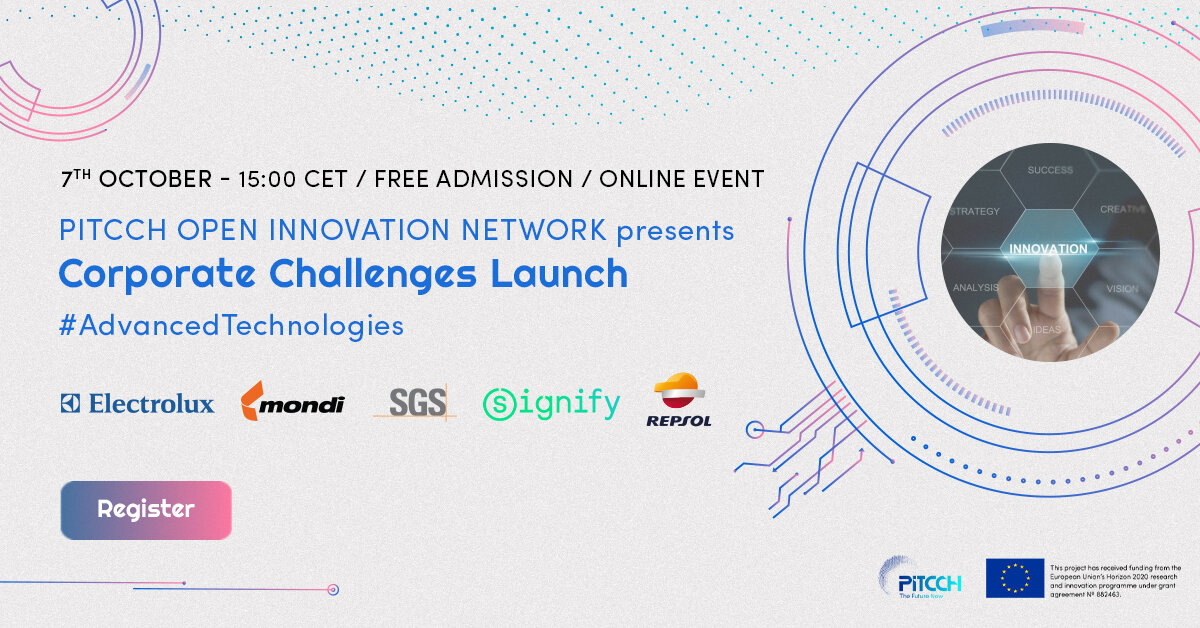
PITCCH Network launches 2nd round of corporate challenges
September 30, 2021
PITCCH project is launching the 2nd round of corporate challenges. The idea of this unique event is to unveil the next 5 technological challenges launched by Electrolux, Mondi, REPSOL, SGS and SIGNIFY. They will take the stage to present their corporate challenges, talk about their open innovation corporate strategies, share expectations on solutions from SMEs and on collaborative projects and answer questions from the audience.
-
ELECTROLUX – Food Recognition APP. #Connectivity, #Artificial Intelligence
-
MONDI – Fly Ash as feedstock to speciality materials. #Advanced Materials
-
REPSOL – Production of Bio-Butadiene from Ethanol. #Advanced Materials, #Industrial Biotechnology
-
SGS – Automated Samplers for Environmental Monitoring. #Advanced Materials, #Nanotechnology, #Micro and Nano-electronics, #Industrial Biotechnology
-
SIGNIFY – Truly organic 3D printing material. #Advanced Materials
During the event, the PITCCH project will be introduced, highlighting the benefits that SMEs/Startups and technology centres can expect under this 2nd round of challenges and the first round of challenges achievements will also be discussed, welcoming two testimonials, one big corporation and one SME that are currently collaborating in PITCCH Open Innovation projects.
We welcome Raffaele Scoccianti from Procter&Gamble who will talk about the experience of the big corporation in the PITCCH process to solve their challenge named “Plastic-free” recyclable packaging for liquid detergents”. Our guest Márcia Filipa da Silva Pereira, CEO of Bandora Systems, will share the experience of an SME in the PITCCH process and give insights from the collaboration with SPIE on the challenge: “Open Data systems for building environment in digital technologies”.
This event is for everyone who wants to engage in the opportunities in advanced technologies and search for a collaborative project.
About PITCCH
The PITCCH project aims to increase the competitiveness of European industries by building a Pan-European Open Innovation Network where technology centres act as intermediaries to facilitate the establishment of structured collaborations between big corporations as technology seekers with small and medium-sized enterprises as technology providers and this way accelerate the market uptake of advanced technologies through different sectors.



